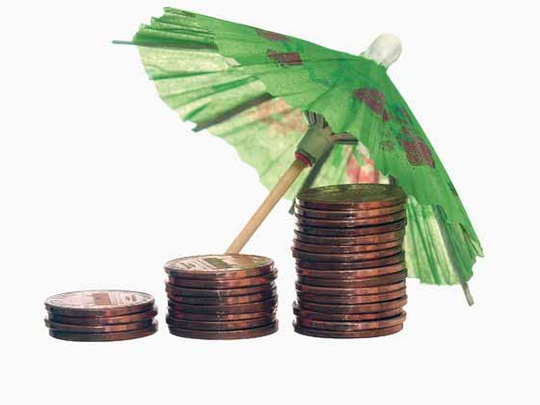
Dubai: The region's high net worth individuals seem to have changed their attitude towards investments regarding acceptable risk and expected rewards.
Naturally, there was an dip in investor confidence as a result of the credit crisis and market meltdown. Last year saw risk appetite among the wealthy retreat significantly, and that apparently continues this year too, although several bankers in the UAE say it is improving.
"It's interesting that, speaking to a lot of clients recently, they are much more prepared to invest in what we would call a much more conservative portfolio," says Gary Dugan, Chief Investment Officer, Emirates NBD, the largest bank in the UAE by assets. "I am not saying they are hiding; they are still prepared to take some risks. But rather than people saying to me, ‘Can you make me 25 per cent per annum?', which they used to here, now they are saying, ‘Please conserve my wealth — and equally build it over time.'"
Bankers say part of the problem of managing the wealth of many investors in the Gulf in the past was that they tended to invest speculatively, and jumped from one asset class to another, which nevertheless provided them with very high returns. They did not always keep a well-diversified portfolio. Advice for a balanced portfolio was ignored, with the retort: "If I could make 50 per cent in real estate, why bother with that approach?"
Now, "the big change is that investors have started appreciating the level of risk that they are taking when looking for a specific return on their portfolios. "The new thing that we are now seeing is that customers are looking at volatility, credit quality, and diversification issues more closely," says Sumeet Bhambri, Head of Wealth Management, Standard Chartered Bank, UAE.
Cautious
Rohit Walia, Executive Vice-Chairman and CEO, Bank Sarasin-Alpen and Alpen Capital, a boutique bank, agrees. "The mentality locally has changed. Investors today have become more cautious, and more aware of the risks involved, not just the rewards. Client expectations have definitely altered. They now ask more questions and want to be more informed on the financial instruments they are investing in."
As for diversification, that means looking beyond equities when choosing assets. For local investments, bond markets seem to be attractive. Simply standing by patiently until markets settle is also an option, even at minimal interest rates, if capital preservation is the order of the day. But cash continues to represent a meaningful portion of client portfolios, according to Walia.
"Fixed-income products issued or guaranteed by government and semi-government institutions are preferred," he says. "A small portion of portfolios is also going still towards alternative strategies, such as commodities and currencies."
But stocks as a class have undoubtedly been hit, and "demand for equity-linked products is relatively low, and normally accessed through our AAA-rated, capital-protected product programmes."
Safety first seems to be the code now.
Clearly, investors need to be watchful and nimble, and the banks who serve them have to move with the times. "Clients [now tend to] want to see simple, straightforward transparent products," Dugan says.
As far as Islamic products are concerned, there seems to be great interest among richer clients.
"I think for choice many of our clients would prefer to invest the Islamic way rather than the conventional way," says Dugan. "Part of the lack of growth I think in recent years has been ‘investment content' not being up to purpose. The structures are there.
"With the passage of time, I think things will improve. Some of the bond funds that have been around in the sukuk market now have a bit of history and a bit more predictability in terms of returns. So we can build our Islamic products with more confidence now."
The global crisis and its effects
Gulf markets have been shaken by regional events as well as the global financial shock and its lingering effects. What is your impression of the impact on the mentality of high net worth individuals locally as investors, regarding acceptable risk and expected rewards?
Clients or investors have been looking for two things.
One, obviously, is limiting risks, making sure they understand what they are investing in. I have a feeling [in many cases] clients were driven by looking at the return as opposed to the risk.
[Another] is that they have reacted by wanting much more advice. I think the value of advice has become very clear, the value of transparency has become very clear, and, frankly, the value of diversification as well has been a lesson that's been learnt regionally.
Has there been a distinct carryover effect on (wealth management) business by way of revised client expectations? How would you characterise the impact overall of the credit crunch, specifically in the past two years? How has it affected operational objectives and actions (e.g. at Barclays)?
If you look at Barclays Wealth globally, we have actually expanded during this period. So both regionally — continuing to expand our product set, our bankers — but also on a global basis, we have taken this as an opportunity. We took over the Lehman operations, the Americas operations. So we have looked at it, frankly, as an opportunity to leapfrog the competition. Our businesses have absolutely continued to grow. But more importantly, it's also that the clients are looking for advice.
For a full version of the article and interview, please check out Gulf News Quarterly Financial Review, to be published on February 22.












